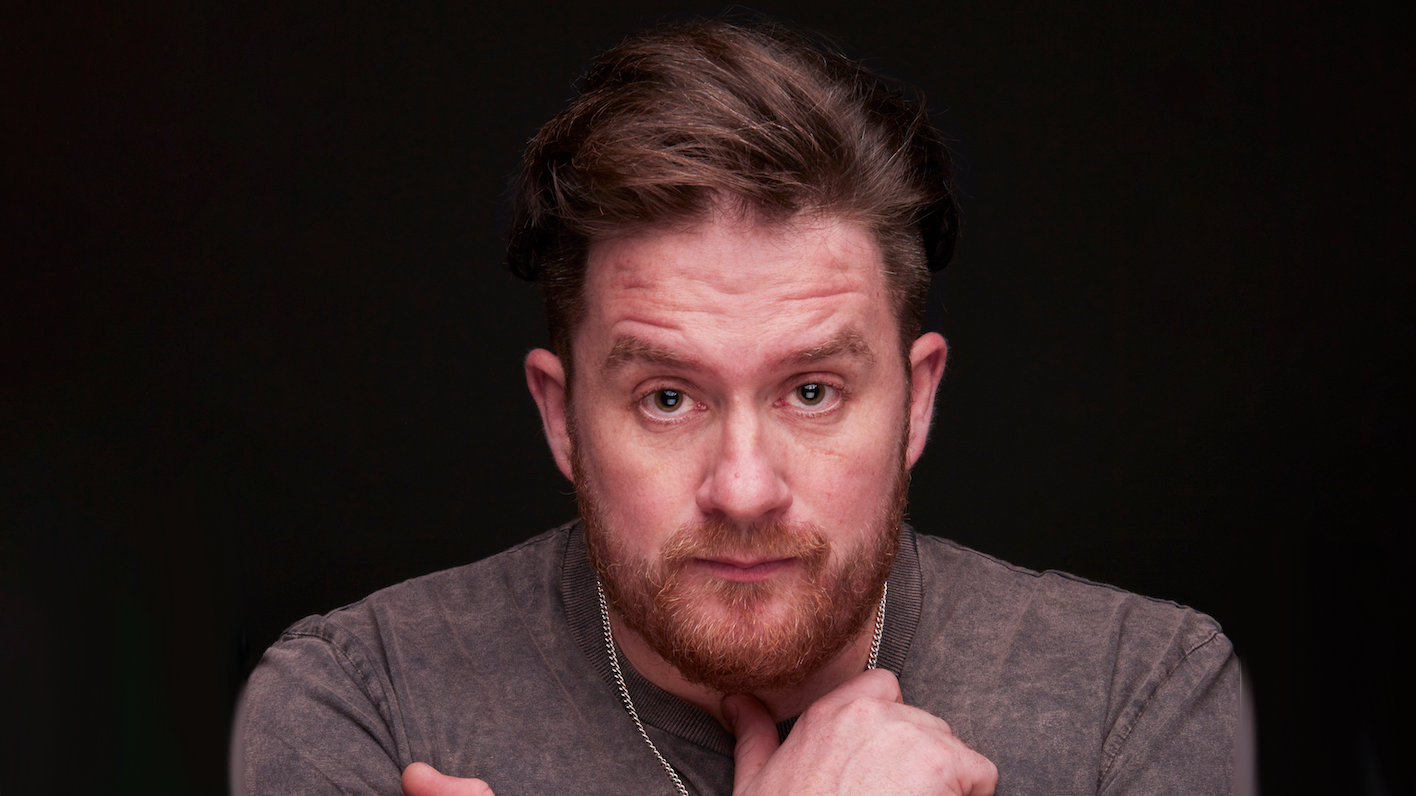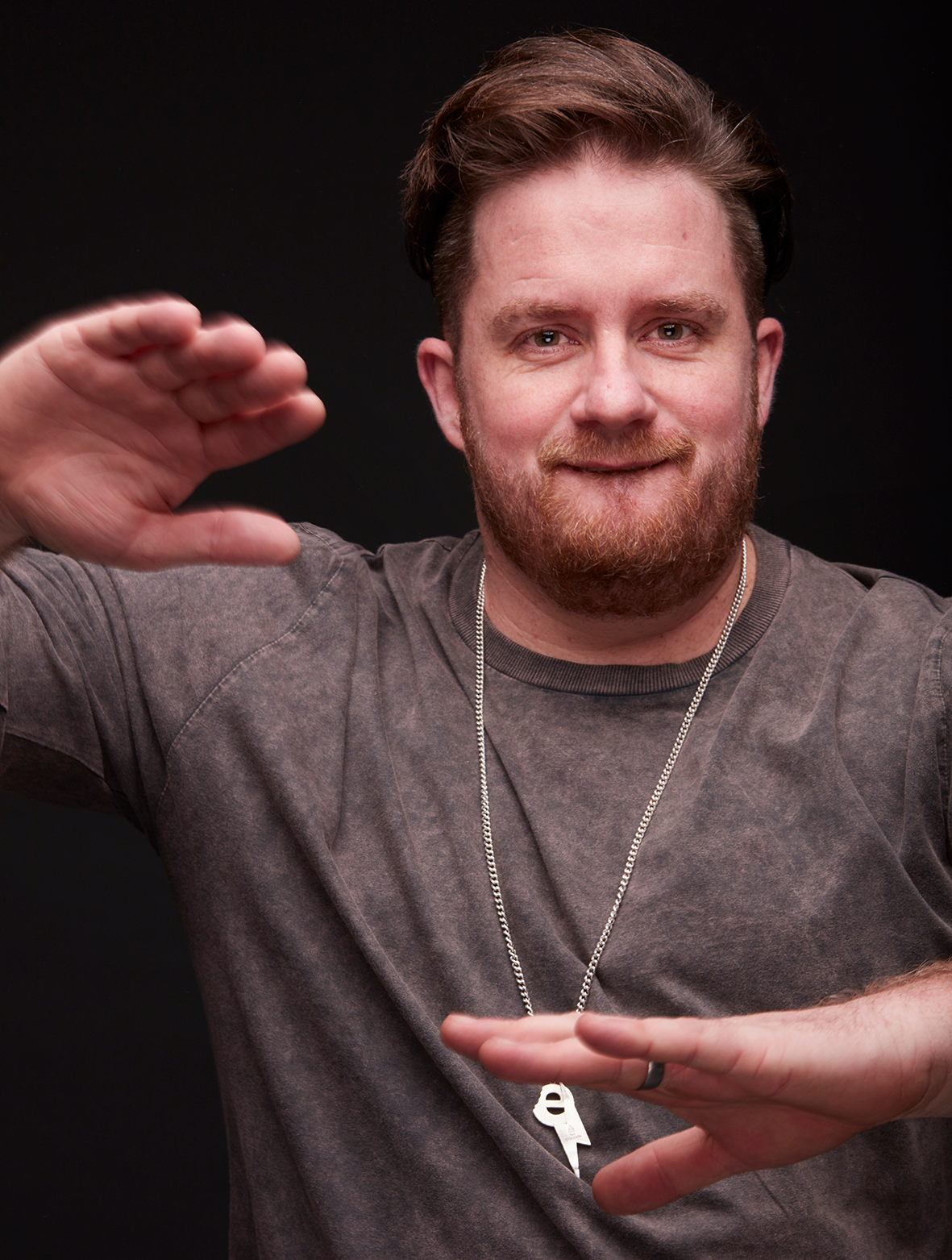Eats Everything: "There’s a plugin that I use on almost every channel and it only cost me about €30"
Eats Everything’s Daniel Pearce on how having his gear stolen and going back to basics inspired a new approach to music-making

Bristol has a rich heritage of producing talented DJs and producers and Eats Everything’s Daniel Pearce has joined that exclusive club.
After spending years slaving away on his productions, his debut house EP Entrance Song (2011) triggered plaudits from industry titans such as Carl Cox, Seth Troxler and Pete Tong. Since then, the infectious beat maker has become a prolific remixer, label owner, radio host and globetrotting DJ.
The last decade has been a wild ride for Pearce, but the Covid lockdown finally gave him time to breathe and reflect. Reverting to a more simplistic approach to production and curious to experiment, his latest single Tell You What It Is, feat. Caribbean duo Shermanology, is a step change from his usual house and techno bangers.
We talk to Pearce about his studio evolution, stolen gear and how taking an enforced break from the DJ circuit has re-energised his creative approach.
Congratulations on surpassing 10 years in the industry. How does it feel?
"It took me 19 years to become an overnight success but I’m one of those people that doesn’t take it for granted. Obviously I’m going to complain about getting stuck at the airport or not getting any sleep before a gig - that’s human nature, but I’m incredibly grateful that I get to do all these amazing things. It’s gone quickly, but life goes quickly doesn’t it?"
Did you have time to reflect during lockdown?
Get the MusicRadar Newsletter
Want all the hottest music and gear news, reviews, deals, features and more, direct to your inbox? Sign up here.
"If I was still touring I never would have made the new record with Shermanology. You’ve got to keep making fresh club bangers to stay relevant, but lockdown gave me the opportunity to make loads of music that I wouldn’t normally make and experiment with lots of tempos and styles. It made me really think about what I want to do in the future and where I want to go."
Did you feel a need to press the reset button?
"It really made me think, this is crazy... why am I forcing myself to go without sleep to play this and that gig? Obviously, the money’s great and lockdown would have been horrific had I not been sensible and saved loads of money, but hopefully that rainy day won’t come again and no one benefits from a DJ that’s had no sleep and is playing his fourth or fifth gig that weekend. After eight years I’ve finally taken stock, so I’m trying to stick two gigs a week so that I’m fresh and prepared for each set."
When you wrote your debut EP Entrance Song, were you primarily producing in-the-box?
"It was all software and most of my early stuff was entirely sample-based utilising the Ableton sampler and manipulating it like a soft synth. I wasn’t the first person to do that, but the way I worked was different to most. Then I fell into a pattern of working more conventionally. As I became increasingly successful, I built a collection of hardware sequencers, synths, compressors and drum machines but just ended up noodling about and not making any music."
What got you inspired again?
"In lockdown, I took my monitor speakers, MIDI keyboard, laptop and UAD interface into a spare room, went back to working how I used to and ended up making three or four tunes a day. I was doing it the way I remembered - the way I knew.
Analogue gear is brilliant, but once you’ve run it through a load of processing no one can tell the difference anyway
"Analogue gear is brilliant, but once you’ve run it through a load of processing no one can tell the difference anyway. It doesn’t matter what’s going into the speakers, what matters is what’s coming out of them. Now when I’m in the studio I have all these machines around me but none of them are turned on [laughs]."
Are you looking to flog off your hardware now?
"Annoyingly, when I was moving all my stuff back into the house at the start of lockdown I left some of it in the boot of my car and it all got nicked. I had a Prophet-5 Rev.3, a Prophet 12, an MPC Renaissance and a Moog Sub 37, but some opportunist must have driven buy and just bobbed it. Half of my stuff is gone, but I’ve still got a few bits that I occasionally use."
What studio are you working from right now?
"My current one is at a place called Factory Studios in Bristol. Massive Attack rehearses there, but the only other people who have a static studio are the rock band Idles and The Editors who have just moved in. I’m actually in Redlight’s old studio and have been here for seven years now. There are no windows but at least I don’t get tempted to go out on a sunny day."
The new single, Tell You What It Is, sounds a little more song-oriented. Was that a result of you trying different styles?
"The track’s very different for me because I’d never done a song before. To be fair, the tune started out much more banging. I took a vocal from an old funk tune and sent it to Pete Tong who told me we’d have to clear the vocal but that became impossible.
I’m always looking for new technologies, but I’m definitely more of an ideas man
"I spoke to Shermanology but Dorothy [Sherman] doesn’t do re-sings so they decided to rewrite the vocal in a similar vein. It’s not high-street house, it’s the kind of thing you’d hear Louie Vega play out, but I didn’t think I’d ever have the wherewithal or skill to do it."
Are you more driven by ideas than technology or are they indivisible?
"I’m always looking for new technologies, but I’m definitely more of an ideas man and actually work in a fairly primitive way. I learnt how to make music on Sonic Foundry Acid, which was like a very basic version of Ableton, and I prefer to use Ableton’s session view rather than clips. I’ll basically finish all the automation in Ableton then bounce the stems into Pro Tools and use the HEAT plugin on the master to add a bit of colour."
In what way do new technologies inspire you?
"They allow you to make noises that you couldn’t before and from that I’ll get inspired to go down another road. I’ve got manic respect for modern age drum and bass producers like Particle, Klinical and Break because I’m always trying to learn how the fuck they’re making noises. They’re using the same kit as me but somehow manage to get sounds that I can’t even imagine making, although I’m starting to learn that it’s not quite as hard as I thought it would be."
What techniques have you been using to emulate some of those artists you mention?
"Using the Klevgrand REAMP plugin to overdrive the fuck out of things without completely killing the source sound has allowed me to emulate sounds that I didn’t think I could before. It’s a guitar amp really, but the four-band EQ and the way you can manipulate the frequency ranges is so precise that it’s been a revelation and helped me to get some really grimy bass sounds. I used none of that on Tell You What It Is, but it’s a wicked piece of kit."

You seem to be a fan of pedals for audio processing?
"Everything runs through them. I use the Eventide H9, the Strymon El Capistan and the Strymon Deco for adding a bit of grunt and grime to things. I’ve actually got Fatboy Slim’s 303 in my studio right now because we’ve been trying to recreate a famous acid line for a remix we’re doing.
"I tried it on a little MB 33 acid box and the new TB-303 but the resonance wouldn’t go as far as I wanted, so I said to Norm, look, either you’re going to have to do it or you’re going to have to use a real 303, so he sent me the one he used for Everybody Needs a 303.
If there’s one production tip you’d recommend, what would it be?
"It’s not so much a production tip, but there’s a plugin that I use on almost every channel and it only cost me about €30. It’s the Infected Mushroom Pusher, which is so simple and easy to use. You can boost the hertz range on a key and get a low-end that you didn’t think possible. It’ll turn your hi-hats into a bad boy, brings out claps and it adds frequency and girth to every note.
There’s a plugin that I use on almost every channel and it only cost me about €30
"I’ve also been using Arturia Pigments a lot – it’s similar to Serum, which is amazing, but it’s got a much more adult sound. With the built-in sequencer and arpeggiator you can create some wicked futuristic leads and basses and some classic–sounding piano."
Have you got tracks queued up for the rest of the year now?
"We’ve got five or six singles ready, hopefully culminating in an album at the end of the year. Other tunes have vocals, but not full vocals like Tell You What It Is. The tracks are a combo of breakbeat, drum and bass, garage, house, electro and some Todd Terry-style numbers. They encapsulate everything I’ve been into over the years and the different styles I went in on during lockdown. I’ve covered it all!"
Eats Everything’s new single, Tell You What It Is, is out now on Three Six Zero Recordings.


“I’m looking forward to breaking it in on stage”: Mustard will be headlining at Coachella tonight with a very exclusive Native Instruments Maschine MK3, and there’s custom yellow Kontrol S49 MIDI keyboard, too
“Turns out they weigh more than I thought... #tornthisway”: Mark Ronson injures himself trying to move a stage monitor









